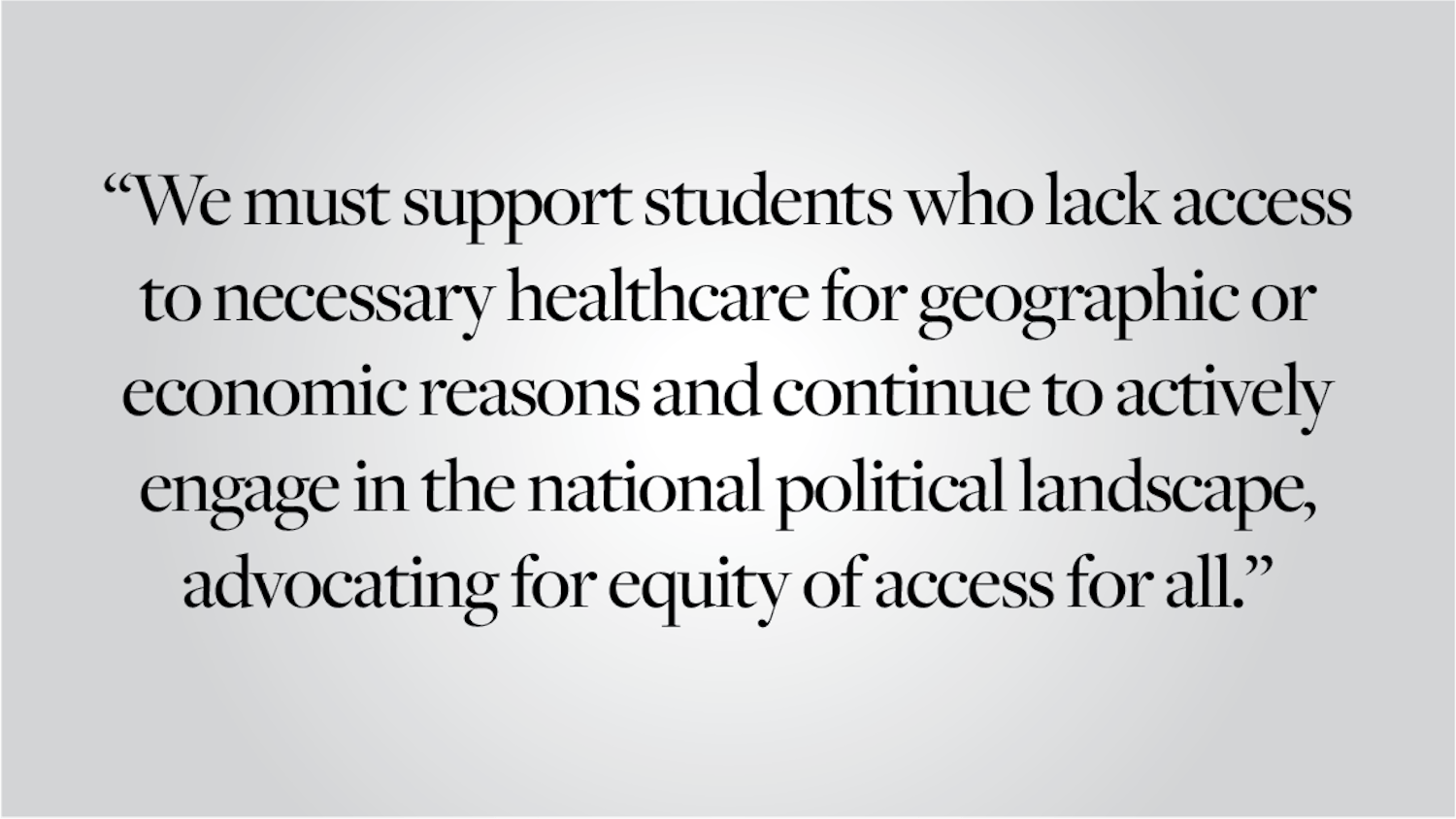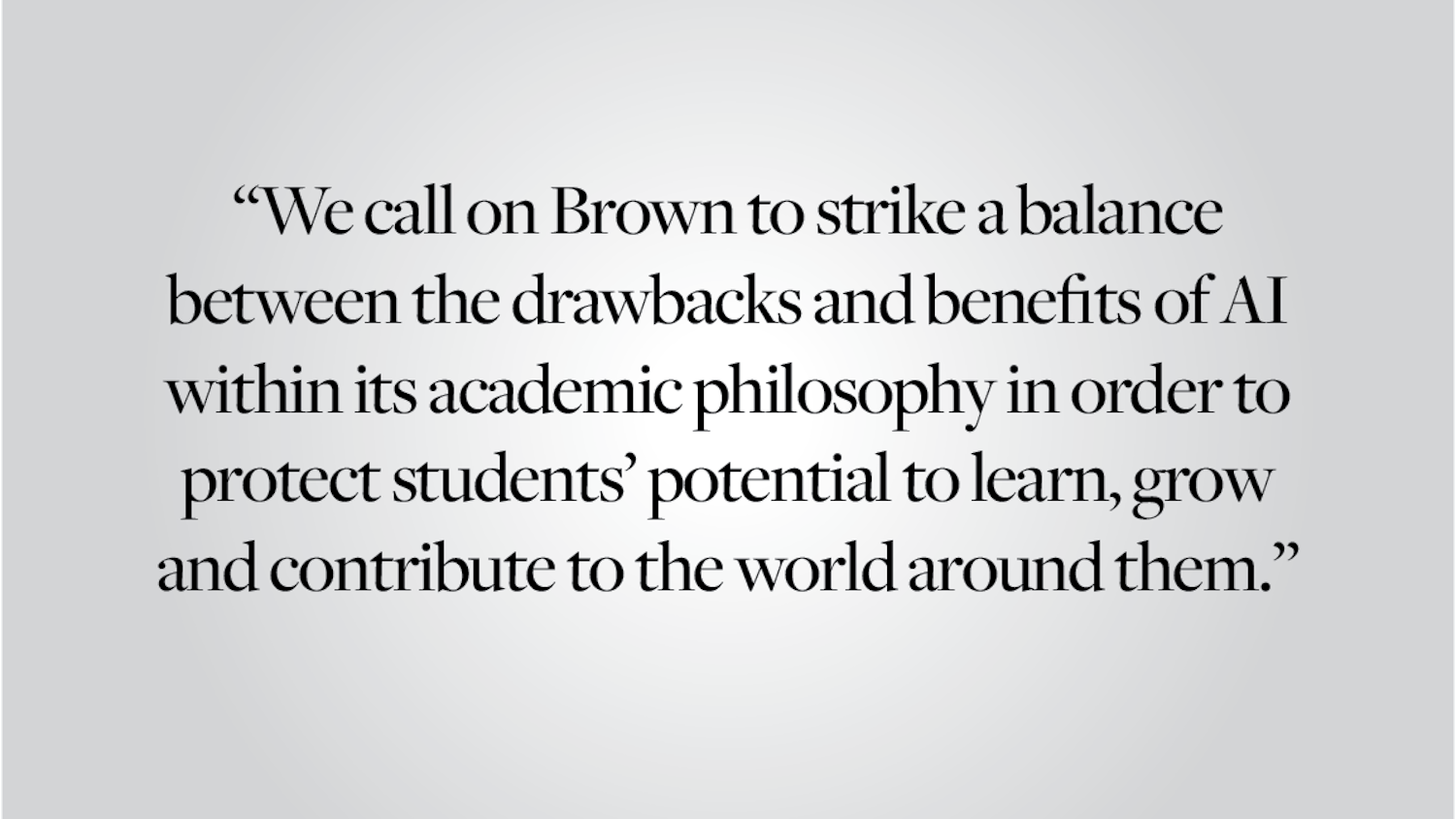We've all either said it to an inconsolable friend or heard it said to us - college admissions today are as much a game of chance as a game of skill. In their quest to construct the perfect class from an almost limitless pool of applicants, admissions committees weigh scores of variables against each other. Geographic background. Academic interests. Sports ability. Legacy status. Economic status. And, yes, race and ethnicity.
Yet with the U.S. Supreme Court set to hand down a potentially major decision next year on the University of Texas at Austin's affirmative action program in the case of Fisher v. University of Texas at Austin, universities' ability to consider applicants' racial background in their admissions processes may soon be a thing of the past. Last week, The Herald reported that Brown plans to file an amicus brief in support of UT Austin's admissions policy. We stand with the University in supporting affirmative action in higher education. Perhaps in this context more than any other, racial affirmative action programs like UT Austin's serve to level an otherwise unequal playing field.
It is common for opponents of affirmative action to argue that college admissions ought to be completely meritocratic. They posit that admitting a "less qualified" minority applicant over a "better" white one is ridiculous and that candidates should be ranked by their academic ability, so that the top-achieving students are admitted. And they assume that there is some metric - SAT score, GPA, what have you - that can accurately measure and compare the aptitude of all students.
Set aside for a moment whether or not college admissions ought to, or even can, be conducted in such a way. Assume SAT scores are unrelated to socioeconomic status and completely flawless in their ability to determine students' academic worth. The fact remains that this is not how the admissions process plays out at almost any university in America. Instead, a host of arbitrary and unfair factors corrupt the application process.
For example, at many schools, including Brown, students whose parents attended the university receive a leg up in admissions. A set number of spots are reserved for recruited athletes. Schools without need-blind admissions consider applicants' economic background. Others may give extra weight to those from underrepresented regions of the country.
None of these has any bearing on how well a student will necessarily do in his or her classes once admitted. Furthermore, almost all of them are likely to favor wealthy white applicants. At Brown and other universities across the country, legacy students are disproportionately white. Athletic recruitment offers are extended largely to students privileged enough to have parents able to devote significant time and resources to their sport.
Affirmative action programs for racially and economically disadvantaged students are not unduly unfair. They are, in part, a way of correcting for equally unfair policies that benefit other students. To reject racial affirmative action programs as somehow unjustly arbitrary is based on an inaccurate view of the college admissions process.
In our opinion, the truly unjust and arbitrary policy is to allow admissions officers to consider every factor besides race. We hope the Supreme Court upholds UT Austin's program and programs like it across the country when it hears the case next term.
Editorials are written by The Herald's editorial page board. Send comments to editorials@browndailyherald.com.




